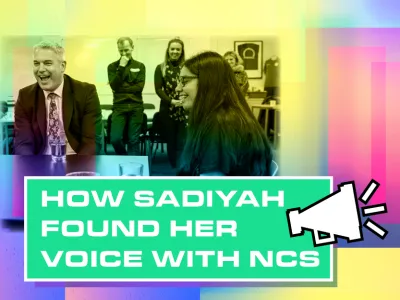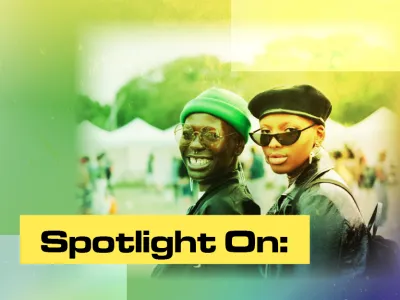
Writers’ Club Winner: What Religion Means To Me
A little while ago we held a competition for new people to join our Writers’ Club. The winners have been picked and we’re really excited to see them produce new content on Connect, on subjects that matter to them. Over the next few weeks we’ll be sharing their winning pitch ideas so you can get to know them a little better.
This article is by Faiyaz, who chose to write about growing up in a Muslim family and what religion has meant to him over the years…
Do you believe in god?
It’s a question I’ve asked myself many a time, and whenever I think it over, I can never settle on a definitive answer. Britain has historically been a Christian nation, but according to a report in 2018 only 38% of the nation report as Christian; 52% don’t identify with any religion, and the rest all belong to religious minorities, of which Islam is the largest. I myself was born and raised in a Muslim family, although I’ve been growing more and more disillusioned with religion. There’s quite a lot of reasons for this, and I imagine they’re fairly common, so I’d like to share these and hope that some of them resonate with you.
Britain’s history is intertwined with Christianity, and as such these are the customs that most British people are familiar with. Islam, Hinduism and other world religions were practically unheard of until the dissolution of the British Empire, and the ensuing mass migration of South Asians into Britain. Today, 6% of Britons are Muslim, and since the other 94% are unfamiliar with our customs, it can be very easy to make a poor first impression, especially given the history of atrocities committed in the name of Islam. This predicament isn’t exclusive to the UK, either – a Dutch friend of mine had her view of Muslims completely corrupted just because she had the misfortune of knowing some bad apples. There is a risk of scrutiny for practicing Islam, although that’s not the reason I’ve been drifting away from it.
I’ve never been forced to memorise the Qur’an by my parents. I’ve never been subjected to extreme prejudice against my heritage, like my grandma had to in her days as a teacher. I’ve been free to live the way I want all my life. And as such, I’ve developed a very particular relationship with religion. My mum adopts a lassez-faire interpretation of Islam, but she is very adamant in her beliefs. Because of her very existence, whenever I hear of other parents being dogmatic in their approach to religion, I lose a lot of respect for them. In my opinion, religion is the business of the individual, and anyone can interpret it how they see fit; after all, if Allah is all-forgiving, surely he wouldn’t mind if I don’t follow every instruction of his to the letter, just the important ones. I used to pray with the other Muslims in my school, but when I wanted to start going to choir and had to miss out once a week, they chastised me and tried to convince me otherwise. They even advocated firmly against listening to music with profanity in it, even if it was good music. I believe that religion can be great for giving your life a sense of purpose, but it should not come at the cost of your freedom. When I realised that some people of my religion had no qualms trying to convince me that said religion was more important than the things I loved, that was when I began to grow disillusioned with it.
It is undeniable how important religion is in everyday life, even now. Culture and religion are intertwined, and very few corners of the earth can escape its influence. Unfortunately, many popular ones are able to be morphed into methods of controlling others, leaving a sour taste in the mouths of open-minded onlookers. I hold steady to the belief that religion is an individual matter, not a societal one, and while I do believe that it is wrong to use ideas of god and morality to influence others into staying away from things that they like, it is just as wrong to attribute the actions and beliefs of one corrupt individual to an entire culture. As long as we have different beliefs there will always be conflict, so we all ought to keep an open mind.




